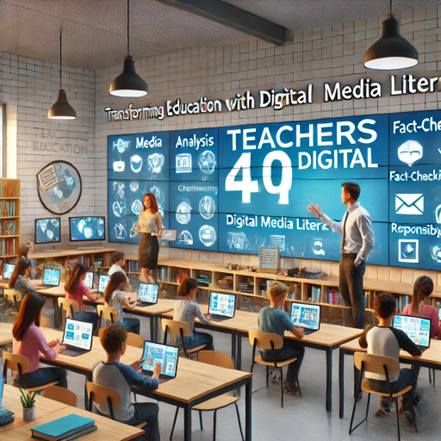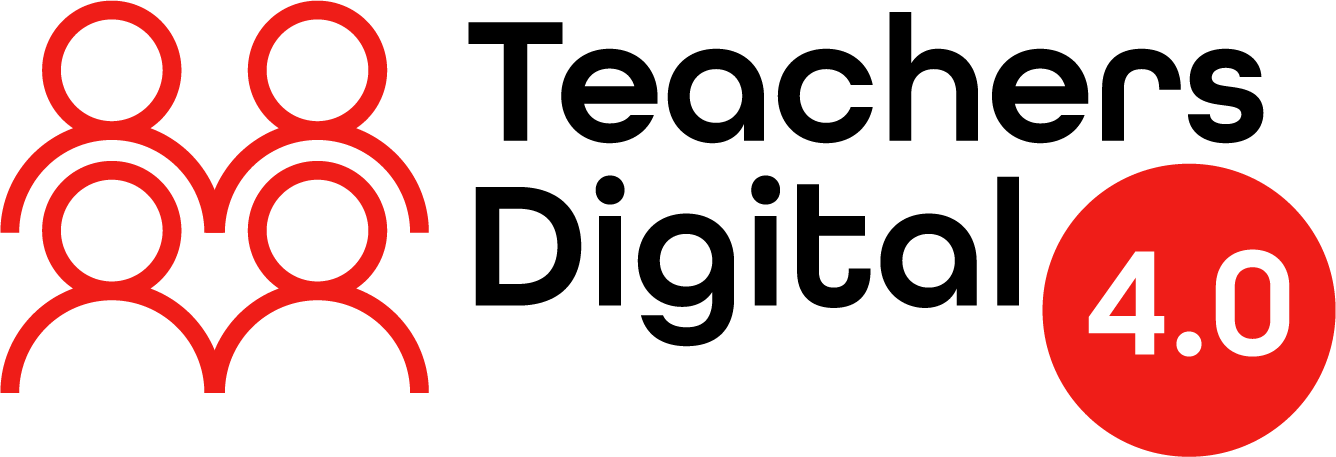
Education must change to prepare students for a future dominated by information and in today’s rapidly changing digital landscape. The ability to critically evaluate, create, and engage with digital content responsibly has made digital media literacy an essential skill It is no longer an optional enhancement but a fundamental requirement for developing informed citizens and skilled professionals in the 21st century.
Fact-checking, media analysis, ethical digital behaviour, and recognising reliable sources are just a few of the skills that make up digital media literacy. Given the prevalence of social media and the growing risks of misinformation and digital manipulation, students must learn to access and assess digital information effectively.
Benefits of Integrating Digital Media Literacy in Education
The benefits of incorporating digital media literacy into the classroom are numerous. By encouraging independent thought and teaching students to question and evaluate online content, it enhances critical thinking skills and reduces their vulnerability to misinformation. Furthermore, it fosters responsible digital citizenship by raising awareness of privacy, digital ethics, and the consequences of online behaviour, helping students develop a respectful and accountable online presence.
Using digital tools to create multimedia content also boosts engagement, storytelling abilities, and creative thinking, further encouraging innovation. Additionally, it promotes fair learning opportunities, ensuring all students receive digital literacy education and are prepared for the evolving job market, contributing to closing the digital divide. Lastly, integrating media literacy into education equips students with essential digital fluency, an increasingly vital skill for modern careers, ensuring they are well-prepared for professional success.
Implementing Digital Media Literacy in Schools
To fully integrate digital media literacy into education, educational institutions and teachers must implement effective strategies. Digital literacy must be integrated into existing disciplines rather than being taught as a stand-alone subject. Promoting experiential learning allows students to apply their knowledge in real-world contexts by creating blogs, films, and podcasts.
Teacher preparation is essential to ensure educators receive comprehensive training on guiding students through digital environments ethically and effectively. Collaboration with digital businesses, media outlets, and academic institutions can provide students with practical experience and real-world insights. Involving parents is also crucial, schools should offer workshops and resources to help parents understand digital best practices and challenges, reinforcing media literacy at home.
The Teachers 4.0 Digital project aims to equip teachers with the resources and expertise needed to integrate digital media literacy into their lesson plans. By providing comprehensive training, the project ensures that educators can effectively guide students through the complexities of digital engagement. This approach fosters a generation that is not only technologically proficient but also capable of critical thinking and responsible digital behaviour.
A key partner of the Teachers 4.0 Digital project is the Institute of Educational Policy (IEP), the official scientific advisor to the Ministry of Education in Greece. The IEP plays a crucial role in shaping and improving educational policies and practices, particularly in primary and secondary education. Its main responsibilities include:
- Curriculum Design and Development: Creating national curricula and drafting school textbooks to ensure high-quality education standards.
- Scientific Research and Studies: Conducting research and evaluations to enhance education quality, address student dropout rates, and promote inclusivity.
- Teacher Training and Professional Development: Organizing training programs to enhance teachers’ skills and familiarize them with modern teaching methods.
- Policy Advisory and Implementation Support: Providing scientific and technical assistance to the Ministry of Education to ensure alignment with national and international quality standards.
Through its collaboration with the Teachers 4.0 Digital project, the IEP contributes significantly to advancing digital media literacy by supporting teacher training initiatives, curriculum development, and educational research. This partnership ensures educators have the necessary resources and guidance to implement effective digital literacy practices in classrooms.
Digital media literacy is a key pillar of modern education, shaping students into informed, responsible, and creative online citizens. Ensuring the next generation can navigate and contribute meaningfully to the digital world requires collaboration between parents, educators, policymakers, and schools.
Initiatives such as Teachers 4.0 Digital lay the foundation for a future where students are not just consumers of digital content but ethical participants and critical thinkers in the digital age.






